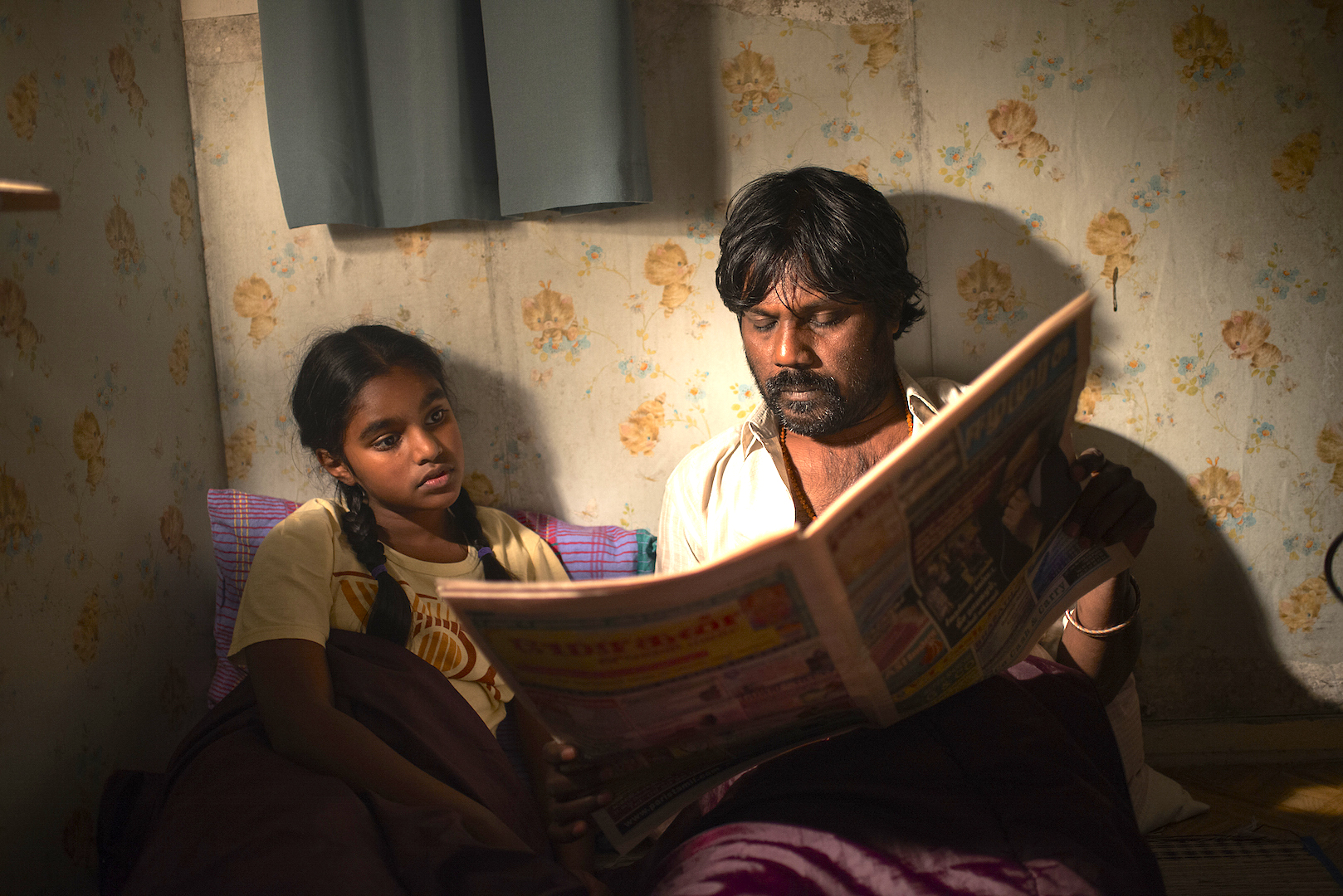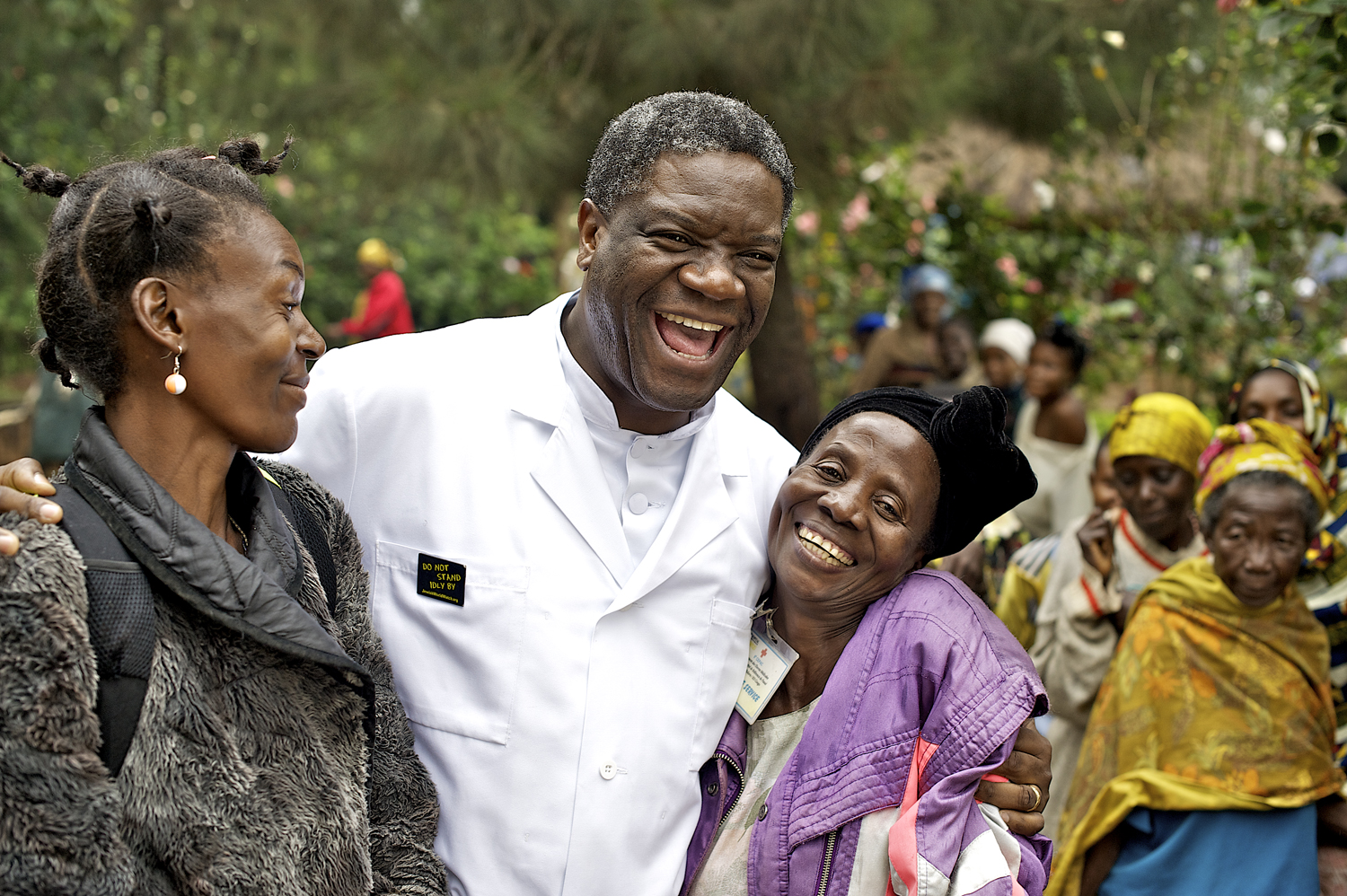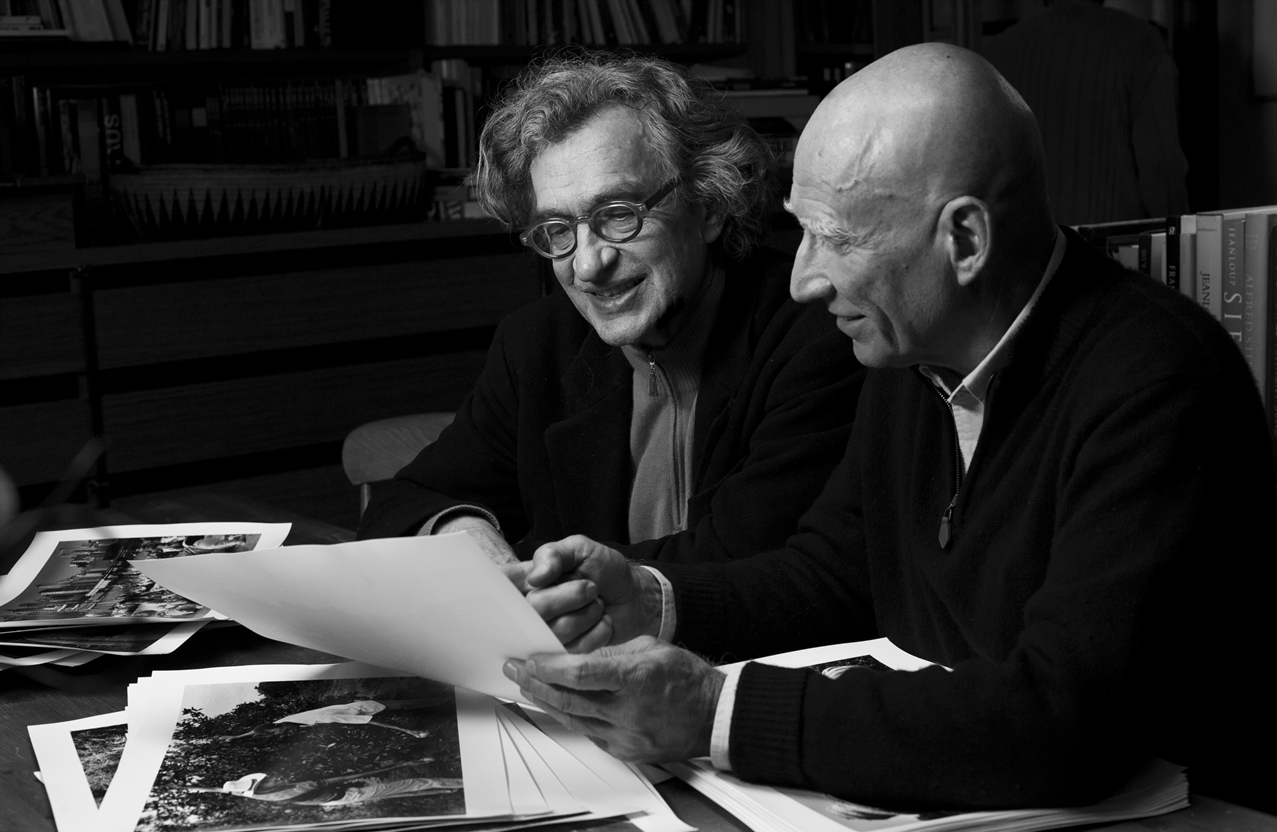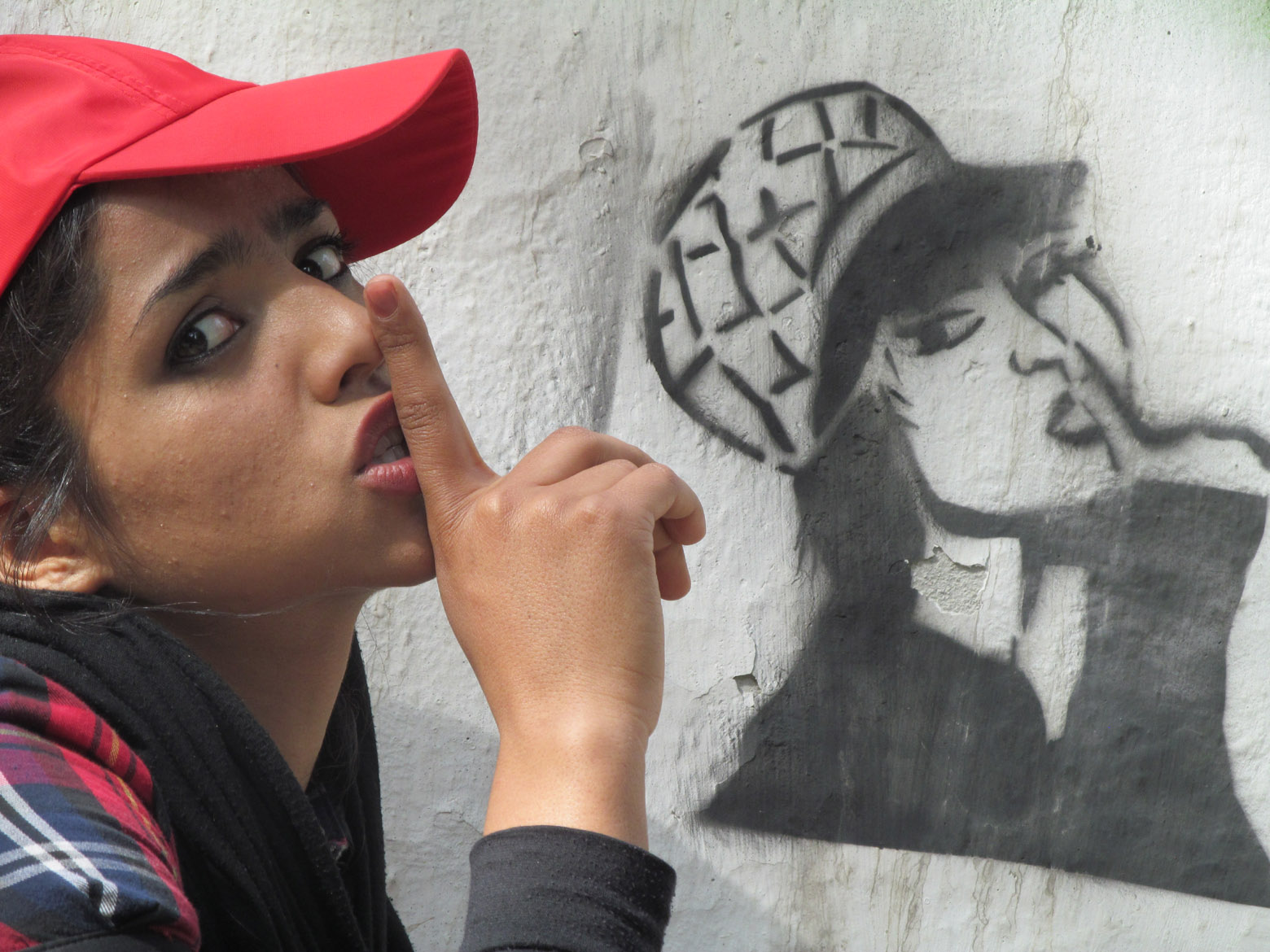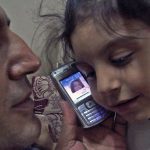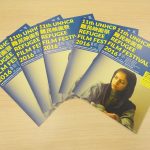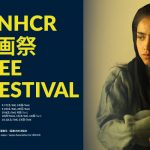Films
Directed by Sean McAllister
UK / 2015 / 80min / Documentary
Language: English, Farsi with English and Japanese subtitles
Supported by Yamagata International Documentary Film Festival
Activists Raghda and Amer met in prison – through a hole in the wall. They fell in love, got married, and had three sons. Sean McAllister begins his story in 2009 and since then for over 5 years, he documents the odyssey of the family and their lives as refugees. A Syrian Love Story reveals us the story of two people and their love, love for their family, and their beloved homeland being hammered by fate and war.
Japan Premiere
Directed by Gianfranco Rosi
Italy, France / 2015 / 114 min / Documentary
66th Berlin International Film Festival Golden Bear
Language: Italian, English with Japanese subtitles
Samuele is twelve and lives on an island in the Mediterranean. Like all boys of his age, he likes to play with his friends and with his slingshot, but his home is not like any other islands. For years, Lampedusa has been the destination for refugees and migrants from Africa and the Middle East, and has become an entry point to Europe. They long for peace, freedom and happiness and yet so often, they end up paying the ultimate price. Gianfranco Rosi’s observations of everyday life bring us closer to this place that has been under a permanent state of emergency.
Directed by Jacques Audiard
France / 2015 / 115 min / Drama
68th Cannes Film Festival Palme d’Or
Language: Tamil, French with Japanese subtitles
A former soldier during the Sri Lankan Civil War decides to move to France to take a fresh chance at life. In order to secure the asylum, he poses as “Dheepan” and pairs with people he barely knew as his “family”. As they arrive in France, he lands a job as a resident caretaker and begins to establish his new life in the suburbs of Paris. During the day, they were a “family”, but at home they were strangers. Just when things were coming together, violence erupts and although he thought he had backed away from war, he reaches for violence to protect his beloved…
Directed by Brillante Mendoza
Philippines / 2015 / 97 min / Drama
2015 Cannes International Film Festival Ecumenical Jury Special Mention
Language: Filipino with Japanese subtitles
In November 2013, a super typhoon ripped through and devastated the city of Tacloban in Leyte, Philippines. Shot in the aftermaths of this disaster, the film portraits the lives of the survivors and their deep scars. As if grieving from the loss of their loved ones was not enough, a series of events continue to test their endurance. People are left with helplessness, but they strive to live strong and to bring back their ordinary life.
Japan Premiere
Directed by Carol Mansour
Lebanon / 2014 / 42 min / Documentary
Language: Arabic with English and Japanese subtitles
Palestinian refugees have been living in Syria for generations since they were forced to flee Palestine in 1948, and yet again, they have been forced to flee from Syria. Those who sought refuge in Lebanon have become a refugee twice over, and their hopes to return home to Palestine have become more distant and thin. The film interviews Palestinian refugees living in different circumstances including those currently residing in Europe, and reveals their lives in exodus, where loss invades all things…
Japan Premiere
Directed by Matthias Koßmehl
Germany / 2015 / 79 min / Documentary
Language: German, English with Japanese subtitles
For decades Café Waldluft was a family hotel and the starting point for walks into the Bavarian mountains. But one day, “Mama Flora” has decided to accommodate only asylum seekers as their guests. “Guests” came from Afghanistan, Syria and Sierra Leone, and soon the Café became a place for tourists and local residents to meet and interact.
Directed by Gen Masayuki
Produced by NHK, Tokyo Video Center
Japan / 2009 / 89 min / Documentary
Language: Japanese with English subtitles
Having no country to return to. No passport to be able to own. Constraints on ordinary things like going to school, and finding a job… these are some of the many issues faced by stateless people. One could become stateless when one is deprived of their nationality fleeing from conflict and persecution, children born outside of marriage, second generation boat people. They are people who fall through the cracks between nations, politics and legislations. Together with Professor Chin – who was also once a stateless person herself – the film depicts the diverse stories of stateless populations, and poses critical questions such as “what is nationality?”, “what is homeland?”, and “what does identity mean?”
Directed by Watai Takeharu
Japan / 2014 / 108 min / Documentary
Language: Arabic, English with English and Japanese subtitles
In April 2003, the day after series of heavy airstrikes near the Tigris River, freelance journalist Watai Takeharu was met with the survivors of the airstrikes at the hospital in Baghdad. He continued interviewing one of the families, and they have agreed to meet in ten years’ time. In March 2013, Watai was back in Baghdad with pictures of those whom he had met during his previous visits. The night before the air raid, the air strike, U.S. armed forces control and occupation, religious rivalry and terrorist bombings… Through the images, words and experiences of these people spanning 10 years, Watai reveals the aftermath and the reality of the Iraq War.
Directed by Thierry Michel
Belgium / 2015 / 113 min / Documentary
Language: French, English, Swahili, Mashi with Japanese subtitles
A documentary film about Doctor Denis Mukwege, a gynecologist and a human rights activist who mended thousands of women who have been raped during the 20 years of conflicts in the East of the Democratic Republic of the Congo. In 2014, Doctor Mukwege won the Sakharov Prize for his work, and for advocating for female survivors of wartime violence. The film documents Doctor Mukwege and those who support and work with him, survivors of wartime violence, and conflict minerals, which is one of the causes of this prolonged conflict.
Japan Premiere
Directed by David Mason
Australia / 2016 / 72 min / Documentary
Language: English with Japanese subtitles
A high-school in Sydney, Australia started a unique and innovative theatre program for students who fled the war in Iraq, Iran, Afghanistan and Serbia. As the curtains are raised and silence descends, the students reveal their “Storm Stories” – the stories that made them refugees. Together with the passionate teachers, students confront their darkest memories to begin the powerful transformation of their lives.
Japan Premiere
Produced by Bahman Ghobadi
Directed by Hazem Khodeideh, Basmeh Soleiman, Sami Hossein, Ronahi Ezaddin, Diar Omar, Delovan Kekha, Mahmod Ahmad, Zohour Saeid
Iraq / 2015 / 73 min / Documentary
Language: Kurdish with Japanese and English subtitles
“What I want from you is to come and see my life.” Kurdish filmmaker Bahman Ghobadi has given eight children from two refugee camps the opportunity to use a camera to tell their own stories. After the filmmaking classes and workshops, young directors made their own scripts, produced and filmed their lives inside their camps. Each of the eight films gives us a glimpse into the plight of the children as well as the Kurdish refugees, as seen through their own eyes.
Directed by Wim Wenders, Juliano Ribeiro Salgado
France, Brazil, Italy / 2014 / 110 min / Documentary
2015 Academy Award Nominee Best Documentary Feature
Language: French, English with Japanese subtitles
Wim Wenders discovered Salgado’s through one of the portraits he had taken – a blind Touareg refugee woman. The Brazilian photographer Sebastião Salgado has been travelling through the continents since he was in his 30s, and since then won over 50 journalistic photography awards including the W. Eugene Smith Memorial Fund Grant in his 40 years of career. Because his work portrays the world so beautifully and majestically, his work is also known as “A God’s eye view of the planet”. Having witnessed some of the major events of our recent history; international conflicts, exodus, genocide, and been confronted by weaknesses and the darkness of mankind, he quietly explains what he sees in humanity.
Japan Premiere
Directed by Rokhsareh Ghaem Maghami
Iran, Germany, Switzerland / 2015 / 91 min / Documentary
Language: English, Farsi with Japanese subtitles
Sonita fled from the Taliban ruled Afghanistan to Iran with some of her relatives, while her parents remained at home. As she receives education at a shelter in Tehran, she dreams of becoming a famous rapper one day. However, her parents want to set up an arranged marriage for her, as they are tempted by the 9,000 dollars they could get from their daughter’s marriage, and wants to use that money for their son’s marriage. On top of all adversity, females are banned from becoming solo singers in Iran, but Sonita wants to choose her own destiny and challenges her fate.



